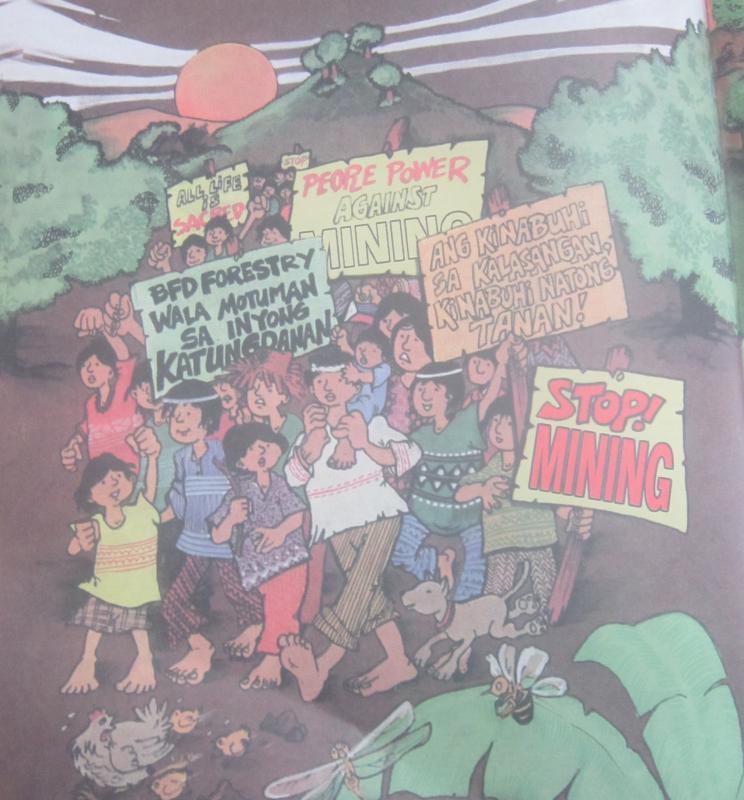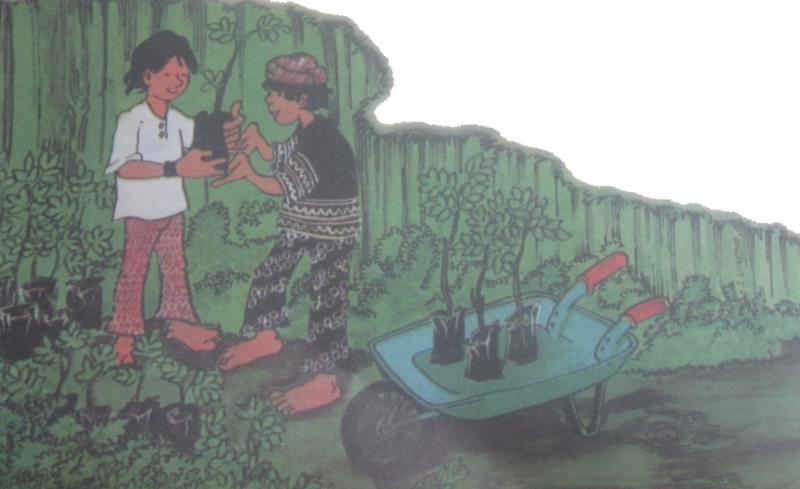Help, The Bulldozers Are Coming

Columban Fr. Michael Gormly has been monitoring the arrival of Australian mining companies to the Philippines. It worries him that the local people are not really being consulted. Disaster and death are the consequences! Here he tells us of his efforts.
Danger Signals
From mid 1996 my Columban colleagues in the Philippines began to contact me with a growing concern at the arrival of Australian based companies seeking mining concession in ecologically sensitive areas –named in many cases as ancestral domains of tribal people. The transnational quest for mineral wealth became an issue for joint consideration in both countries. We were challenged to face the core issue about what can be done when powerful political, commercial and technical forces threaten a powerless community of the poor.
Marked approached
The World Bank, began a few years ago spelling out conditions for a recovery strategy for the Philippines based on the country’s mineral resources. The Ramos Administration then sought to fast track an economic solution for the new millennium. It meant a program of liberating and deregulating the national economy in order to achieve higher levels of economic development. A market-orientated approach took precedence over development strategies in favour of the poor.
Generous Come-ons
In March 1995, President Ramos instituted a new system of mineral resources development by encouraging the entry of foreign mining companies with generous incentives. The transnational mining corporation sought a slice of the action, with Australian based firms tothe fore. The whole matter was passed off as a business investment coup by the Manila leadership. Consultation with the constituency was not a high priority in Manila. The central government claimed the natural resources of the nation in the cause of the economy.
Push from Australia
The Australian Government encouraged companies to make the most of offshore opportunities, suggesting that no group would act more responsibly, in terms of respecting the social, cultural and natural environment. The word from Canberra was that the interest of the indigenous people would be of particular concern to Australians with experience and expertise in this area. Further, any form of sustained economic development would ultimately ensure a decent livelihood for all the people. Important human, social and political factors are conveniently neglected in this scenario.
Worlds largest
In August, I made contact with the CRA headquarters in Melbourne, bringing the Midsalip concerns directly to the company and seeking clariication on policy and postures overseas. I especially sought evidence of a company code concerning consultation with indigenous peoples, and of standards relating to the environment protection of a landscape. The matter was all the more relevant when the merger of CRA (formerly Conzinc Rio Tinto Australia) with the London based mining giant TRZ (formerly Rio Tinto Zinc) resulted in the creation of the world’s largest mining corporation.
Pagadi-an Case
I believe that in the rush to establish advantage in the Philippines, through a subsidiary named Tropical Exploration Philippines Incorporated (TEPI), recognition and respect for the local peoples in the Pagadian district of Zamboanga del Sur was forgotten. Consultations were characterized by glossy presentation and technical assurances about exploration and modern mining practices. Listening, especially listening to the fears and anxieties of the local people, was, minimal. In my conservations I have insisted that listening to concerns in order to explain them away will never satisfy.
Philippine Environment Secretary, Victor Ramos, holds that a complete airing of people's concers will be taken care of in the administrative provisions of the mining code. He claims that if clear signals relating to social acceptability and environmental hazaeds are made, then authorities will listen. Again, the quaity of this listening is crucial. Clearly local and expatriate officials need to recognize that community consultation is not just a haphazard accomplishment in favour of the government or corporations.

Not a Spectator Sport
The Philippines mining saga is by no means over, but there has been some learning along the way. There will always be considerable scope for discord and conflict over the use of natural resources. If tensions and tragedies are to be avoided, concern for the interest of all citizens must be high among the values informing the conduct of transnational mining.
The discourse of the elite must be placed under scrutiny and the voice of local communities heard With respect. This is not a spectator sport. We are all called to be participants.
